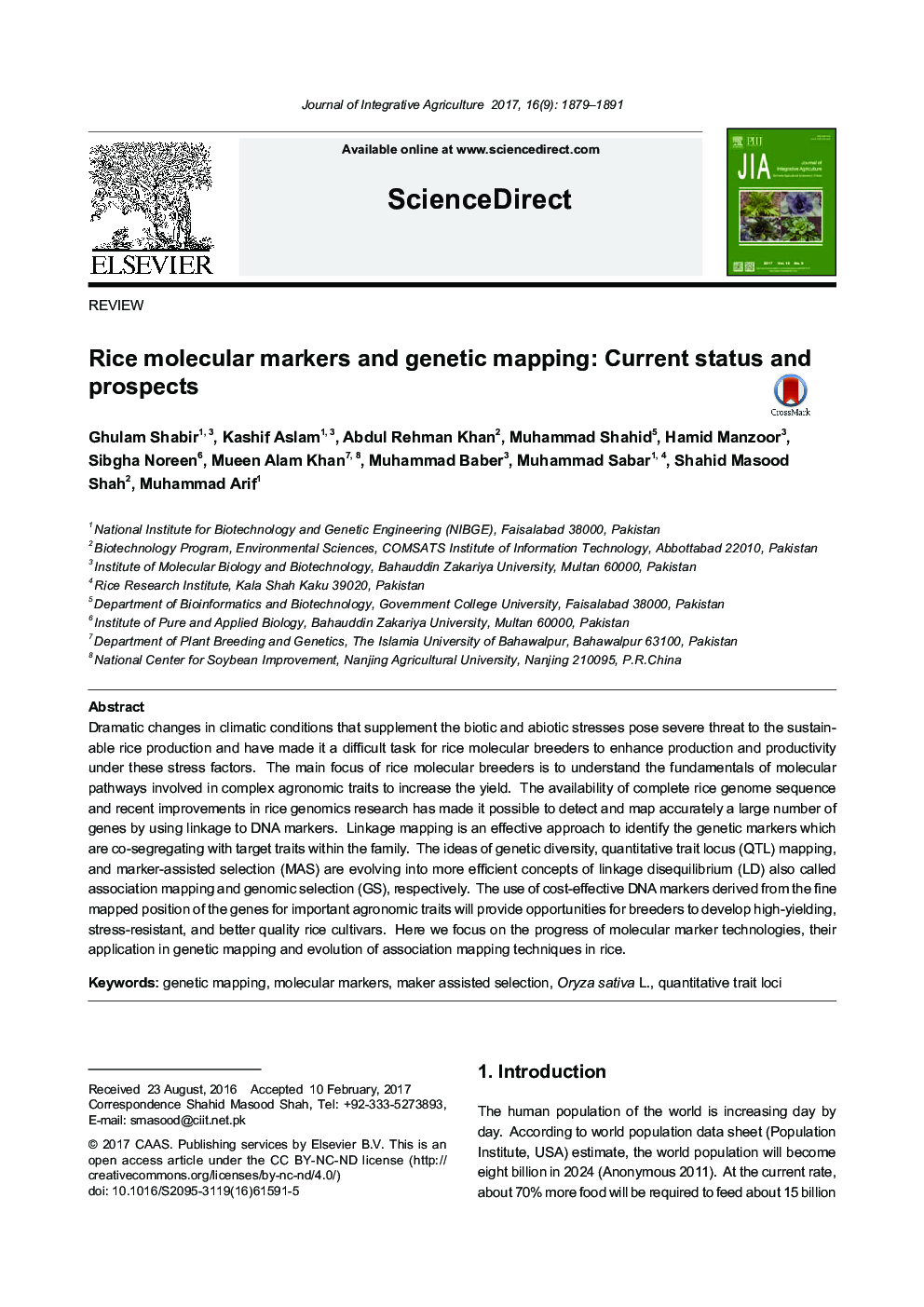| Article ID | Journal | Published Year | Pages | File Type |
|---|---|---|---|---|
| 8875856 | Journal of Integrative Agriculture | 2017 | 13 Pages |
Abstract
Dramatic changes in climatic conditions that supplement the biotic and abiotic stresses pose severe threat to the sustainable rice production and have made it a difficult task for rice molecular breeders to enhance production and productivity under these stress factors. The main focus of rice molecular breeders is to understand the fundamentals of molecular pathways involved in complex agronomic traits to increase the yield. The availability of complete rice genome sequence and recent improvements in rice genomics research has made it possible to detect and map accurately a large number of genes by using linkage to DNA markers. Linkage mapping is an effective approach to identify the genetic markers which are co-segregating with target traits within the family. The ideas of genetic diversity, quantitative trait locus (QTL) mapping, and marker-assisted selection (MAS) are evolving into more efficient concepts of linkage disequilibrium (LD) also called association mapping and genomic selection (GS), respectively. The use of cost-effective DNA markers derived from the fine mapped position of the genes for important agronomic traits will provide opportunities for breeders to develop high-yielding, stress-resistant, and better quality rice cultivars. Here we focus on the progress of molecular marker technologies, their application in genetic mapping and evolution of association mapping techniques in rice.
Related Topics
Life Sciences
Agricultural and Biological Sciences
Agricultural and Biological Sciences (General)
Authors
Ghulam Shabir, Kashif Aslam, Abdul Rehman Khan, Muhammad Shahid, Hamid Manzoor, Sibgha Noreen, Mueen Alam Khan, Muhammad Baber, Muhammad Sabar, Shahid Masood Shah, Muhammad Arif,
